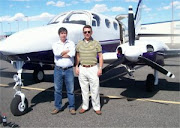
By MARTIGA LOHN, Associated Press Writer Martiga Lohn, Associated Press Writer
Sat Dec 27, 3:39 pm ET
ST. PAUL, Minn. – Minnesota is deep in the hole financially, but the state still owns a premier golf resort, a sprawling amateur sports complex, a big airport, a major zoo and land holdings the size of the Central American country of Belize.
Valuables like these are in for a closer look as 44 states cope with deficits.
Like families pawning the silver to get through a tight spot, states such as Minnesota, New York, Massachusetts and Illinois are thinking of selling or leasing toll roads, parks, lotteries and other assets to raise desperately needed cash.
Minnesota Gov. Tim Pawlenty has hinted that his January budget proposal will include proposals to privatize some of what the state owns or does. The Republican is looking for cash to help close a $5.27 billion deficit without raising taxes.
GOP lawmakers are pushing to privatize the Minneapolis-St. Paul International Airport and the state lottery. Both steps require a higher authority — federal legislation in the case of the airport, a voter-approved constitutional amendment for the lottery. But one lawmaker estimated an airport deal could bring in at least $2.5 billion, and the lottery $500 million.
Massachusetts lawmakers are considering putting the Massachusetts Turnpike in private hands. That could bring in upfront money to help with a $1.4 billion deficit, while also saving on highway operating costs.
In New York, Democratic Gov. David Paterson appointed a commission to look into leasing state assets, including the Tappan Zee Bridge north of New York City, the lottery, golf courses, toll roads, parks and beaches. Recommendations are expected next month.
Such projects could be attractive to private investors and public pension funds looking for safe places to put their money in this scary economy, said Leonard Gilroy, a privatization expert with the market-oriented Reason Foundation in Los Angeles.
"Infrastructure is more attractive today than ever," Gilroy said. "It's tangible. It's a road. It's water. It's an airport. It's something that is — you know, you hear the term recession-proof."
Unions don't like privatization deals out of fear that worker wages and benefits will be squeezed as private operators try to boost their profit by streamlining services.
Taxpayers, too, can lose out if the arrangements don't work — and sometimes even if they do, said Mark Price, a labor economist with the Keystone Research Center in Harrisburg, Pa. Higher tolls on privatized roads can push drivers onto state-operated roads, wearing them down faster and raising public costs over time.
"You're privatizing some profits in this process and socializing some losses," Price said.
Selling or leasing public assets can produce an immediate infusion of cash for the state, while foisting the tough decisions, such as raising tolls, onto private operators instead of the politicians.
"The downsides are often after they leave office," said Phineas Baxandall, a researcher with the consumer-oriented U.S. Public Interest Research Group in Boston.
Some states struck major privatization deals well before the economic crisis hit.
Indiana, for example, brought in $3.8 billion in 2006 by leasing the Indiana Toll Road for 75 years. Chicago stands to collect $2.5 billion by leasing Midway Airport, if the federal government approves, and has raised an additional $3.5 billion since 2005 through deals for the Chicago Skyway toll road, parking ramps and parking meters.
But in September, investors walked away from a $12.8 billion bid to lease the Pennsylvania Turnpike for 75 years after legislators failed to act on the deal. And Texas lawmakers uneasy over a proposed private toll road system approved a two-year moratorium on such contracts last year.
David Fisher, who managed Minnesota's state-owned properties a few years ago under former Gov. Jesse Ventura, warned that the state has a hard time finding buyers for properties such as old mental institutions.
Fisher said some public properties belong in private hands, such as Giants Ridge Golf & Ski Resort, a top-rated getaway in Biwabik, and Ironworld, a museum and library in Chisholm. Both are owned and subsidized by Iron Range Resources, a state agency.
"Certainly those things could be privatized, I think without harm to the state, but I don't know that you could find the right buyer," Fisher said.































